Discover Sushant Pradhan Podcast
Sushant Pradhan Podcast

Sushant Pradhan Podcast
Author: Sushant Pradhan
Subscribed: 1,824Played: 29,224Subscribe
Share
© Sushant Pradhan
Description
Conversations spark ideas and ideas lead to actions that drive growth of the society. I believe long and unfiltered deep conversation is a lost art in this near perfectly presented world. And this is my attempt to have real conversations with real minds and present them to you. The goal is to learn from the greatest minds and take you on the journey.
Do subscribe if you feel this would add value to your life.
Do subscribe if you feel this would add value to your life.
507 Episodes
Reverse
Why Students Are Leaving Nepal for Education. Join us in an insightful conversation with Surendra Subedi, a prominent Nepali educator and academic leader, currently serving as Campus Chief of Kathmandu Model College (KMC) and Chairman of Model Institute of Technology (MIT). In this podcast, Surendra shares his journey from initially pursuing law to becoming one of the leading voices in Nepali education reform. He discusses his early days as a program coordinator, balancing his personal life with his professional life, and his enduring passion for education. Discover his thoughts on going abroad for higher education, the challenges students face in the study/work cycle, and the government's perspective on studying abroad. Surendra also explores the shift from the yearly system to a semester system, why the semester system in Nepal is superior, and how American standard education is applied at MIT. He candidly discusses assignment systems, online learning, and strategies for retaining knowledge while studying. This episode is a must-watch for anyone interested in higher education in Nepal, student life balance, and education leadership. Gain insights on education reform leaders, practical advice for students, and a closer look at the Nepali university system. Don’t miss Surendra Subedi’s unique perspective on transforming Nepal’s academic landscape.
GET CONNECTED WITH Surendra Subedi:
LinkedIn - https://np.linkedin.com/in/surendrasubedi
Facebook - https://www.facebook.com/surendra.subedi.75/
The Untold History of Doti Explained by Ratan Bhandari. In this insightful podcast episode, renowned Nepalese author and border expert Ratan Bhandari uncovers the untold history of the Doti Kingdom, one of Nepal’s most misunderstood and forgotten ancient kingdoms. Known for his deep research on Nepal’s border issues and historical maps, Ratan Bhandari explains why Doti played a crucial role in shaping Nepal’s political and territorial history. The discussion explores why Doti is important in Nepal’s past, how it differed from what we commonly believe, and whether the multiple regions referred to as Doti were historically connected. The episode also sheds light on who ruled Doti, its governance system, and how power shifted during the era of Baise Rajya and Chaubise Rajya. Listeners gain clarity on the clashes involving Doti and how these events influenced Nepal’s borders. Ratan Bhandari also explains the significance of map correction in Nepal’s currency, offering valuable context on Nepal’s territorial representation. The conversation delves further into Doti's religion, culture, and traditions, revealing how cultural identity shaped the kingdom’s legacy. This episode is essential for anyone interested in Nepal's history, ancient kingdoms, border disputes, and the real stories behind Nepal’s formation.
GET CONNECTED WITH Ratan Bhandari:
Facebook - https://www.facebook.com/ratanbhandariji
YouTube - https://www.youtube.com/channel/UCnr3vDYv4dHSqq4oXVk54Cw
Chumbak Band, the rising alternative/indie rock group from Itahari, Nepal, joins us for an in-depth conversation about their creative journey, their unique sound, and the story behind releasing two albums in one year, including their newest project “Josh.” In this episode, the three present members—Anil (Gongba) on vocals, Sahil on guitar, and Suman on bass—break down how Chumbak Band formed from members of Afthyaro, Retro Rocket, and Zero Brains, and how their chemistry shaped the band’s identity. We explore their songwriting process, their approach to building an authentic Nepali alternative rock sound, and how growing up in Itahari influenced their musical direction. The band shares insights into the challenges Nepali bands face, the hunger to create new music, and why they continue to push boundaries in Nepal’s indie rock scene. Whether you're a fan of Chumbak Band, curious about Nepali rock, or interested in the behind-the-scenes process of a band crafting albums back-to-back, this conversation delivers honest stories, new perspectives, and exciting details about the “Josh” album, future plans, lineup shifts, and the evolution of their creative process.
GET CONNECTED WITH Chumbak Band:
Facebook - https://www.facebook.com/p/Chumbak-band-100078656604843/
YouTube - https://www.youtube.com/channel/UCgv96ABqVOhWcHxggrL9onw
Instagram - https://www.instagram.com/chum_bak/
Instagram {Bassist Bibek} - https://www.instagram.com/st_goti/
Instagram {Guitarist Sahil} - https://www.instagram.com/riffl0rd/
Instagram {Vocalist Anil aka. GhongBa Spikes} - https://www.instagram.com/_iam_acrow/
In this Part 2 episode, geopolitical analyst Jason Baidya breaks down the major global events, covert operations, and political shifts of the 1960s that reshaped the world. Jason begins with the critical political atmosphere of the early 60s, exploring Operation Gladio, Operation Gibraltar, the Vietnam War, and the hidden power dynamics that influenced global decision-making. He explains how the decade’s conflicts, social movements, and “social fracture” changed societies across continents. We also dive into the early technology era—from floppy disks to emerging information control—before exploring the shifting relationship between the United States and China. Jason provides insight into the 1966 global political landscape, including the 6 Day War, Yom Kippur War, and the expansion of US bases in the Middle East. The conversation continues with major *map shifts, how borders evolved, and how travel shaped culture and geopolitics. Jason then unpacks the geopolitical environment of South Asia, the first mission of RAW, Arab world influence, democratic changes, and the drastic transformation of global politics after 9/11. If you’re interested in Cold War operations, South Asian geopolitics, or the hidden power plays behind world events, this episode delivers a clear, engaging breakdown of the forces shaping modern history.
GET CONNECTED WITH : Jason Baidya
Facebook - https://www.facebook.com/jason.baidya.5/
Twitter - https://x.com/JasonDBaidya
In this episode, geopolitical analyst Jason Baidya breaks down some of the biggest turning points that shaped our modern world. We explore what Nepalis think about geopolitics, the aftermath of World War 1 and World War 2, and how these global conflicts continue to influence our world today. Jason analyzes the Venezuela crisis, the rise of China’s soft power through apps and video games, and how technological advancement has reshaped influence and global strategy. A major part of the conversation dives into the current China–Japan conflict, examining regional tensions and their global impact. We also discuss the push for de-dollarisation, the shifting dynamics of global currency power, and how nations are responding to US dominance. From the Cuban Missile Crisis to Operation Northwoods, we revisit historical moments that reveal how geopolitical strategies evolve. Jason offers a clear and grounded perspective on global power shifts, South Asian geopolitics, and the forces shaping the future. If you’re interested in China’s rise, global currency wars, or a deeper understanding of past and present conflicts, this conversation offers an insightful, easy-to-understand breakdown of geopolitics in today’s world.
GET CONNECTED WITH Jason Baidya:
Facebook - https://www.facebook.com/jason.baidya.5/
Twitter - https://x.com/JasonDBaidya
SPONSOR :
College partner : Model Institute of Technology
Instagram: https://www.instagram.com/mitnepal/
MIT: https://mitnepal.edu.np/
Facebook: https://www.facebook.com/MITechCollege
In this in-depth conversation, we sit down with veteran Nepalese diplomat and respected author Dr. Madan Kumar Bhattarai, former Foreign Secretary and Presidential advisor, to explore his remarkable journey in Nepal’s foreign policy, diplomacy, and geopolitical strategy. Dr. Bhattarai shares stories from his student life, his writing process, and the inspiration behind his influential books, such as Nepalko Pararashtra Sambandha and his biography of Narendra Mani Acharya Dixit. He discusses how a diplomat should carry responsibility, how historical details are collected for his works, and why preserving Nepal’s diplomatic history is essential. We delve into Nepal’s evolving geopolitical situation, national security priorities, and the shifting dynamics of Nepal–India and Nepal–China relations. Dr. Bhattarai offers valuable insights on where Nepal’s foreign minister must focus, the challenges of South Asian diplomacy, and how Nepal can strengthen its global engagement. Packed with expert analysis on Nepal diplomacy, foreign affairs, international relations, and Himalayan geopolitics, this episode is essential for anyone interested in Nepal’s strategic future.
GET CONNECTED WITH Madan Kumar Bhattarai:
Facebook - https://www.facebook.com/madan.bhattarai.3511
SPONSOR :
College partner : Model Institute of Technology
Instagram: https://www.instagram.com/mitnepal/
MIT: https://mitnepal.edu.np/
Facebook: https://www.facebook.com/MITechCollege
In this powerful episode, we sit down with Pawan Regmi, one of Nepal’s most respected ethical hackers, cybersecurity educators, and researchers, to uncover the truth about how vulnerable we really are in the digital world. From social media hacking and influencer account breaches to email protection, password security, and browser extension risks, Pawan breaks down real cyber threats that affect everyday people. He explains how hackers target popular accounts, how one wrong click can expose your data, and why most people still don’t change their passwords. We also dive deeply into the future of E-voting in Nepal, the risks behind digital elections, and whether the country is prepared for such a shift. Pawan shares insights into website security measures, device hacking techniques, and the dangers of how apps secretly collect your data. The conversation also covers USB 2FA security tools, creating the perfect password, and the importance of online awareness—especially when it comes to sharing kids’ pictures online. From EV car hacking possibilities to daily cyber habits that keep you safe, this episode is packed with practical advice. Whether you’re curious about cybersecurity in Nepal, worried about your digital privacy, or simply want to understand how hackers think, this conversation with Pawan Regmi is a must-watch.
GET CONNECTED WITH Pawan Regmi:
Instagram - https://www.instagram.com/pawan_official7/
In this exciting episode, we sit down with Deep Astronomy and Space in a Nutshell, two of the biggest Nepali astronomy content creators, known for sharing mind-blowing space facts and cosmic news with millions across the world. From the fascinating journey of 3I Atlas, the science of comets, and the behavior of binary star systems, to deeper questions like whether alien life exists in the universe, this conversation explores some of the most intriguing mysteries in astronomy. We dive into the Milky Way & Andromeda collision, the cosmic background signals, auroras, volcanic eruptions on distant worlds, and how scientists study strange phenomena like land breathing on Earth. The creators also reveal how they started producing space content, how they build viral videos, approach brands, deal with scams, and target a global audience through educational storytelling. We also discuss the Starlink network, solar energy, returning to the Moon, and the growing Nepal scientific community. Whether you're curious about space, fascinated by the universe, or interested in content creation strategy, this episode brings together astronomy, creativity, and science communication at its finest.
GET CONNECTED WITH: Deep Astronomy and Space in Nutshell
The Deep Astronomy
Instagram - https://www.instagram.com/thedeepastronomy/
Facebook - https://www.facebook.com/thedeepastronomy
Space In Nutshell aka. Siddhant Acharya
Instagram - https://www.instagram.com/spaceinnutshell/
Instagram - https://www.instagram.com/astrosid__/
Facebook - https://www.facebook.com/spaceinnutshell
Facebook - https://www.facebook.com/siddhantacharya27
YouTube - https://www.youtube.com/channel/UCy-qVInxrICN6ynjoIHcv0A
In this episode, we sit with Sahat Kasa, the creator behind the SJK Podcast and one of Nepal’s most thoughtful young voices, for a conversation that moves from philosophy to society, from technology to personal growth. We begin by exploring individualism vs society and why Sahat believes this tension shapes how young Nepalis think, act, and make decisions. He reflects on Dr. K’s ideology, the idea of not being fully self-sufficient, and how morality becomes blurry in a rapidly changing culture. Sahat also shares why so many Nepalis leave the country not out of passion but due to circumstance, and how communal expectations often outweigh personal freedom. The conversation moves into religious philosophies, whether Nepal should become a freer society, and what Socrates’ ancient ideas about voting reveal about modern Nepal. Sahat also breaks down issues in the Nepali education system, touches on Sushant Pradhan’s career path, and explains how he personally used AI during his studies. Later, Sahat talks about his content shift, the rise of voting based on popularity, influencers facing legal trouble, and whether Nepal is ready for electronic voting. He speaks openly about opportunities Nepal is losing, what he does beyond podcasting, parental support, lessons learned from hosting long-form conversations, and how online communities—from Reddit to social media—shape the new flow of information. From space, freedom, and culture to public figures like Rishi Dhamala and Rajendra Baniya, this episode captures a wide and honest look at the mindset of today’s Nepal.
GET CONNECTED WITH Sahat Kasa:
YouTube - https://www.youtube.com/@SahatKasa
Instagram - https://www.instagram.com/sahatkasa
Twitter - https://x.com/sahatkasa
TikTok - https://www.tiktok.com/@sahatkasa
In this deep and thought-provoking episode, Dr. Niraj Poudyal, a respected academic researcher and philosopher, discusses Atheism, Secularism, and the relationship between Science and Religion. The conversation begins with his personal interest in atheism, followed by an exploration of what atheism truly means—beyond misconceptions that it’s simply “not believing in God.” Dr. Poudyal explains how religion and culture overlap, the belief in karma and reincarnation, and how changing religion isn’t the same as becoming an atheist. He offers insights on the origin of religion, the historical situation of atheism, and how ideas of superpower and energy relate to spiritual and scientific thinking. In the second part, Dr. Poudyal breaks down secularism, explaining its importance in maintaining balance between faith and freedom. He also addresses morality for atheists, challenging the notion that ethics require religion. The discussion closes with reflections on science, reason, and human values. Whether you’re religious, spiritual, or skeptical, this conversation helps you understand the spectrum of belief, atheism, and secular thought in a broader human and Nepali context.
GET CONNECTED WITH Dr. Niraj Poudyal:
LinkedIn - https://np.linkedin.com/in/niraj-poudyal-phd-12b85b159
Google Scholar - https://scholar.google.com/citations?user=8GHVJywAAAAJ&hl=en
AI in Agriculture: Dr. Bipendra Basnyat on Farming & the Future of AI. In this podcast, we sit down with Dr. Bipendra Basnyat, an AI researcher, innovator, entrepreneur, and professor with over two decades of experience in artificial intelligence and machine learning. Dr. Basnyat shares deep insights on the future of farming, AI in agriculture, Nepali farming challenges, sustainable agriculture, and what it takes to bridge the tech gap in agriculture. From owning a farm to applying precision agriculture and building intelligent systems for real-world use, he explains why the agriculture industry is overdue for innovation. We explore the role of AI in Nepal, the practicality of AI for farmers, and whether modern tools can truly improve local farming practices. Dr. Basnyat also dives into misconceptions about AI, the hype surrounding AI consciousness, the dangers of letting AI control our lives, and the urgent need for data security as technology evolves. We discuss the core problems in agriculture, the reality of commercial farming, and whether people can genuinely make a living through farming today. The conversation also touches on entrepreneurship in Nepal, career paths in tech, and how young people can thrive in a rapidly changing world influenced by artificial intelligence. If you’re curious about farm automation, the future of work, or the intersection of AI and agriculture, this episode offers powerful clarity from one of the industry’s leading experts.
GET CONNECTED WITH Dr. Bipendra Basnyat:
LinkedIn - https://www.linkedin.com/in/bipendra-basnyat-p-e-phd-65795a2a
Google Scholar - https://scholar.google.com/citations?user=JS_czckAAAAJ&hl=en
Sarangi’s Revival: How Kiran Nepali Changed Nepali Folk Forever. In this episode, we sit down with Kiran Nepali, one of Nepal’s most influential musicians, a master of the Sarangi, and a core member of the iconic folk band Kutumba. From preserving heritage to modernizing Nepali sound, Kiran shares his journey from Prava to Folktronics, and how Project Sarangi is inspiring a new generation to embrace traditional Nepali instruments. He talks about the early struggles of playing the Sarangi, the legacy of the Gandharva community, and how the Sarangi evolved from raw materials and handcrafted techniques to a global musical identity. Kiran dives deep into how foreign listeners view the Sarangi, why Nepali music has become a unique tourist attraction, and the importance of collaborating with international artists to elevate Nepali culture. He also opens up about childhood influences, stage rituals, teaching young learners, and the future scope of the Sarangi in Nepal. Whether you're a fan of Nepali music, folk fusion, or curious about the making and modernization of traditional instruments, this podcast gives a rich look into Nepal’s musical heritage, Sarangi’s cultural impact, and the future of Nepali folk music. A must-watch for anyone who loves Nepali culture, artistry, and inspiring stories.
GET CONNECTED WITH Kiran Nepali:
Instagram - https://www.instagram.com/nepali_kiran/?hl=en
YouTube- https://www.youtube.com/channel/UC52qi6mN4CW5t3gKpT3PEPQ
TikTok - https://www.tiktok.com/@kirannepalix
Spotify - https://open.spotify.com/artist/0uRkCFcT51QGsaLgg2MCQl
Facebook - https://www.facebook.com/KiranSarangiNepali
Apple Music - https://music.apple.com/us/artist/kiran-nepali/1385548580
In this in-depth conversation, we sit down with Santosh Kumar Dhakal, a Military General, to break down the realities behind the Gen Z Protest in Nepal, the allegations against the army, and the rising regional tensions. He explains how the meeting unfolded, including the global parallels with the Gen Z movement, the revolutions in Iran, Sri Lanka, and Bangladesh, and offers clarity on the role of the Nepal Army during mass protests. We also discuss accusations that the army failed to protect key buildings, whether the army can act without orders, and how Nepal’s national security and defense system actually operates. The conversation expands to highlight the precipitating and underlying causes and the likely influence of varied actors beyond the objectives of the Gen Zs. It highlights the importance of geopolitics and the security concerns of our neighbors, having symbiotic relations with Nepal’s own security. He also talked about China and India’s security concerns vis-à-vis Nepal’s security concerns.
GET CONNECTED WITH Santosh Kumar Dhakal:
Facebook - https://www.facebook.com/santosh.k.dhakal?mibextid=wwXIfr&rdid=VaLxSoPZUjvlUeBZ&share_url=https%3A%2F%2Fwww.facebook.com%2Fshare%2F197fRS2ntC%2F%3Fmibextid%3DwwXIfr#
SPONSOR : Our title sponsor "PROTON NEPAL"
Instagram: https://www.instagram.com/protonnepal/
Facebook: https://www.facebook.com/ProtonCarsNepal
College partner :
Model Institute of Technology
Instagram: https://www.instagram.com/mitnepal/
MIT: https://mitnepal.edu.np/
Facebook: https://www.facebook.com/MITechCollege
In this in-depth episode, we sit down with Mukti Aryal, a distinguished financial economist, investment banker, and former Chief Secretary of Nepal, to explore the fascinating world of finance, investment, and markets. From the origins of financial systems to the modern Nepal Stock Exchange (NEPSE), Aryal takes us through the history of finance, explaining key concepts like bonds, IPOs, preferred shares, and financial products that shape our economy. He explains what an IPO really is, whether it’s always worth Rs. 100, and how fundamental analysis drives the stock market. The discussion also explores market manipulation, lessons from the Great Depression, and why the number of stock brokers in Nepal remains so limited. Further, we dive into valuation, cash flow, and how businesses can face losses despite high revenue. Aryal breaks down portfolio theory, derivatives, and treasury management, offering practical insights for investors and students of economics alike. This podcast is a must-watch for anyone interested in financial education, investment banking, or the future of Nepal’s economy. Subscribe for more insights from leaders like Mukti Aryal on finance, economics, and markets.
GET CONNECTED WITH Mukti Aryal:
LinkedIn - https://np.linkedin.com/in/mukti-aryal-68aa5a355
Facebook - https://www.facebook.com/p/Mukti-Aryal-100076327443829/
In this episode, we sit down with Majid Ansari, a ninth-semester BALLB student at Nepal Law Campus, to dive deep into Nepal’s current political climate, youth-led protests, constitutional gaps, and the future of leadership in the country. Majid discusses why top political leaders haven’t been arrested, how protests and curfews unfolded, and what the autopsy and transparency debates reveal about institutional trust. He also explains the psychology behind brainwashing Nepali citizens, the influence of social media vs physical campaigns, and what a directly elected Prime Minister could mean for Nepal. We explore the monarchy debate, whether monarchy brings power balance, the flaws within monarchical systems, and how countries like the UK developed their royal structures. Majid also breaks down historical shifts—from Lipulekh during the King’s rule, to the role of President Ram Chandra Poudel during the recent Gen Z movement. Other major topics include: how the next President should be elected, the history of UML and Maoist movements, the significance of NOTA in elections, and what happens if future elections don’t take place on time. This episode is packed with legal, political, and historical insight—perfect for anyone trying to understand Nepal’s present and future political trajectory. #MajidAnsari #NepalPolitics #GenZProtestNepal #Nepal #KPOliArrest #ElectionDelayNepal #MonarchyDebateNepal #NOTANepal #DirectlyElectedPMNepal #TikTokProtestNepal #PoliceProtocolNepal #LipulekhIssue #UMLHistoryNepal #MaoistWarNepal #NepalGovernance #PresidentNepalRole #YouthProtestNepal #PoliticalReformNepal #ConstitutionNepal #PowerBalanceNepal #PoliticalAnalysisNepal
GET CONNECTED WITH Majid Ansari:
Instagram - https://www.instagram.com/majidansari___/
Facebook - https://www.facebook.com/majid.ansari.876825/about/
Prof. Bishnu Prasad Basel on Youth Protest, Politics & Nepal’s Future. In this thought-provoking podcast, Prof. Bishnu Prasad Basel, Adjunct Professor of Sociology at Tribhuvan University, joins us for a deep conversation about the state of Nepal’s politics, the rise of youth protests, and the future of socialism and democracy in the country. From the Gen Z protest movements to the struggles within Nepal’s political parties, Prof. Basel explains how social structures, economic inequality, and ideological confusion are shaping modern Nepal. He also discusses why democracy exists in theory but not within political parties, what role socialism and capitalism play in Nepal’s development, and how the country can create a more accountable political system. We dive into the history of Nepal’s unification by Prithvi Narayan Shah, the role of caste in politics, and the urgent need for civic education and youth engagement. This episode offers deep insight into why protests repeat, how new political parties struggle to emerge, and what Nepal must do to achieve true democratic reform. Whether you’re a student, political observer, or active citizen, this conversation with Prof. Bishnu Prasad Basel will reshape how you view Nepal’s democracy, governance, and political culture. #NepalPolitics #BishnuPrasadBasel #GenZProtest #Socialism #Democracy #PoliticalChange #Nepal #Communism #YouthInPolitics #CapitalismInNepal
GET CONNECTED WITH Prof. Bishnu Prasad Basel:
Email - baselbishnu@gmail.com
Twitter - https://x.com/BishnuBasel99
In this insightful episode, Dr. Niraj Poudyal, an advocate for equity and inclusion in Nepal, breaks down complex economic and social realities shaping the nation’s development. Known for his ability to simplify intricate ideas, Dr. Poudel discusses why some regions in Nepal grow faster than others, the real meaning of a 4–5% GDP growth rate, and why economic growth doesn’t always translate into better living standards. He explains how state and private partnerships can drive progress, yet corruption and unequal policies continue to hinder growth. The discussion explores how per capita income can differ dramatically even when GDP is similar — revealing the unseen inequalities within economic systems. Dr. Poudel also reflects on national pride, urging citizens to respect the flag, map, and anthem, and to cultivate a more positive and proactive national mindset. He touches on migration trends, border issues, and how developing countries can learn from global economic patterns without losing cultural values. This episode offers a rare mix of economics, governance, and social psychology, helping viewers understand Nepal’s growth story from a deeply human and practical perspective. #NepalEconomy #DrNirajPoudel #CorruptionInNepal #EconomicGrowth #NepalPodcast #DevelopmentInequality #MigrationNepal #EquityAndInclusion
GET CONNECTED WITH Dr. Niraj Poudel:
LinkedIn - https://np.linkedin.com/in/niraj-poudyal-phd-12b85b159
In this eye-opening episode, Amir Poudel, an environmental expert and a Ph.D. scholar at Texas A&M University, and an adjunct faculty at Johns Hopkins University, Washington D.C., shares his nearly 2.5 years of research and field experience living with the Rautes— Nepal’s last nomadic people . Amir reveals how the Raute community has managed to preserve its ancient culture amid modernization. He discusses why the Raute migrate, their unique beliefs surrounding death and cleanliness, and how they view monkeys — a sacred and essential part of their identity, livelihoods, and hunting life. The episode explores the Raute hierarchy, decision-making traditions, and their remarkable meat-sharing culture that reinforces community unity. Amir also sheds light on the Rautes´ relationship with money, disputes and conflict resolution, and how they maintain their independence from modern governance systems. He discusses the impact of government´s social welfare funds, the challenges of cultural preservation, and the ethics of modernization in indigenous contexts. This conversation offers a rare, authentic glimpse into one of the world’s few remaining nomadic hunter-gatherer societies, exploring anthropology, sustainability, and humanity’s shared cultural heritage. He explores how monkeys and the life of Rautes are entangled with each other as both share a very dynamic geographical and social landscape. #RautePeople #AmirPoudel #NomadicPeople #NormadicLife #IndigenousNepal #AnthropologyPodcast #CultureAndSociety
GET CONNECTED WITH Amir Poudel:
LinkedIn - https://np.linkedin.com/in/amir-poudel-961535a2
TikTok - https://www.tiktok.com/@anepaldai
YouTube - https://www.youtube.com/@amirpoudel1
In this episode, Siddhant Acharya, the creator of Space in Nutshell—a page with over 1.5 million followers exploring cosmology and the mysteries of the universe—joins us for a deep conversation on AI, civilization, and the future of humanity. He opens up about his first podcast experience, how the Space in Nutshell Instagram page was removed, and how creators like Joe Rogan and Mr Beast inspired his cosmic storytelling. We dive into the development of technology, what makes a Type-1 Civilization, and how AI could transform human progress toward intergalactic life. From CERN’s experiments rumored to trigger earthquakes, to the strange prediction that Earth might lose a second by 2029, this podcast covers fascinating science and speculation. We also explore the two moons of Earth, Dyson Sphere theory, an astronomer’s mysterious death in space, and even a flower grown beyond Earth’s atmosphere. Later, Siddhant discusses Amaterasu particles, asteroids flying past Earth, sea beads discovered in Mustang, Nepal, Point Nemo, and predictions about the end of the world. The episode closes with reflections on China’s technological lead, Nepal’s politics, and how youth can shape the future. If you’re into space, science, technology, or cosmic philosophy, this episode is a must-watch. #SpaceInNutshell #SiddhantAcharya #Podcast #AI #CERN #DysonSphere #Type1Civilization
GET CONNECTED WITH Siddhant Acharya :
Instagram (Space in nutshell) - https://www.instagram.com/spaceinnutshell/
Instagram (Personal) - https://www.instagram.com/astrosid__/
Youtube - https://www.youtube.com/@DiscussionDynamics
In this episode, we sit down with Raju Bhetwaal, the Senior Vice President of Jagdamba Motors, who brings over three decades of experience in Nepal’s automobile sector. From the early days of petrol vehicles to today’s electric revolution, Raju shares deep insights into how the EV market in Nepal is evolving and what challenges still stand in its way. He discusses the rising demand for electric vehicles, the current state of EV charging stations, and the misconceptions people have about battery life, maintenance, and long-term costs. We explore why many still hesitate to switch from petrol and diesel vehicles to EVs, and how Nepal’s electricity supply and policies impact adoption. Raju also breaks down the EV-related provisions in Budget 2081, the role of NAIMA, and the journey behind Proton’s entry into the Nepali market through Jagdamba Motors. He shares his experiences in automobile innovation since the 1990s, his thoughts on sustainability, infrastructure, and EV technology improvements over time. The episode closes with valuable entrepreneurship advice for young innovators—focusing on consistency, humility, and innovation. If you’re curious about the future of EVs in Nepal, this episode is your full guide to the next automotive era. #EVNepal #RajuBhetwaal #JagdambaMotors #ElectricVehicleNepal #ProtonNepal #EVPodcast
GET CONNECTED WITH Raju Bhetwaal:
LinkedIn - https://in.linkedin.com/in/raju-bhetwal-79338b1b5


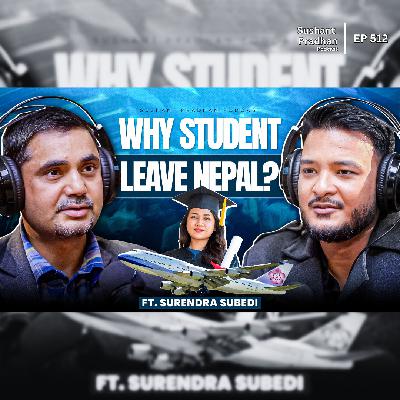
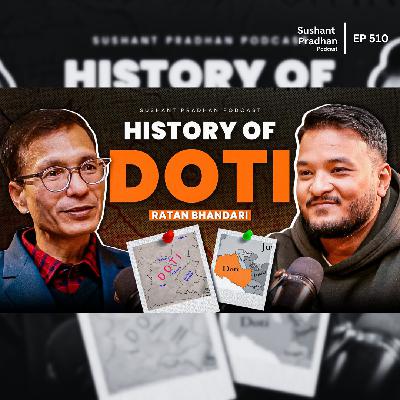


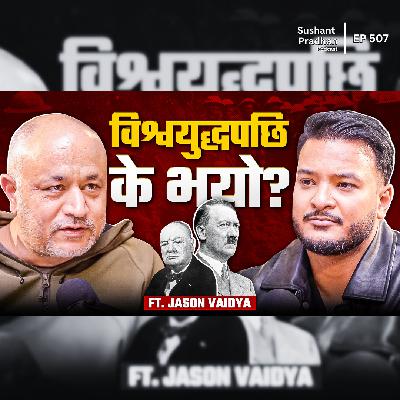
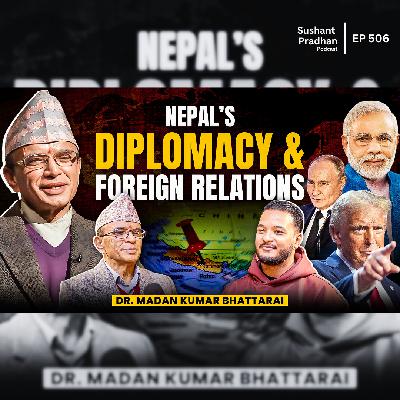

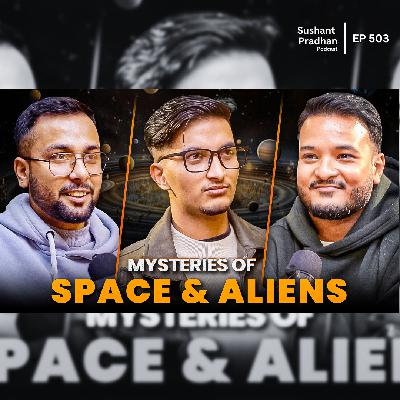
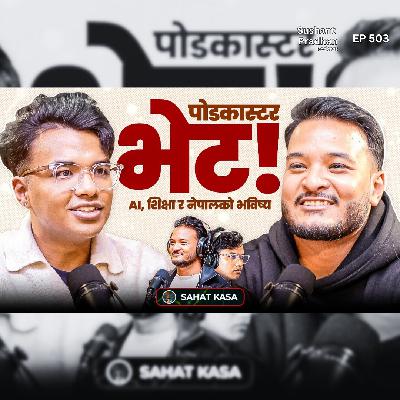

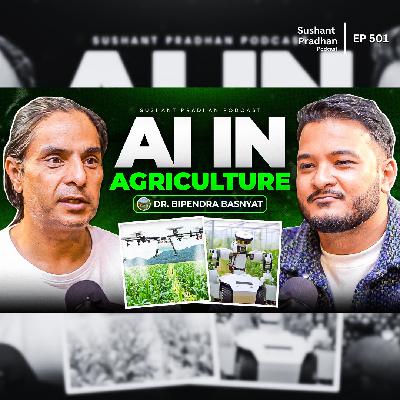
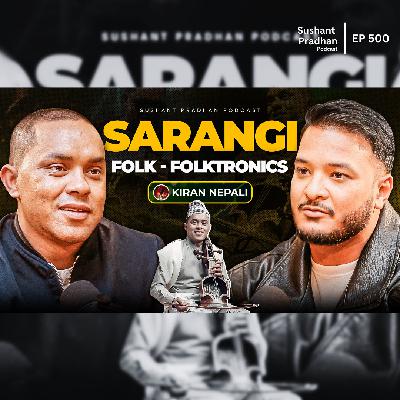
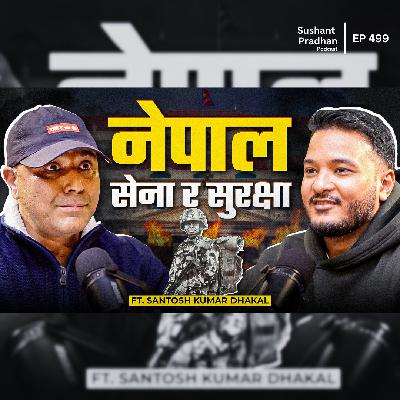
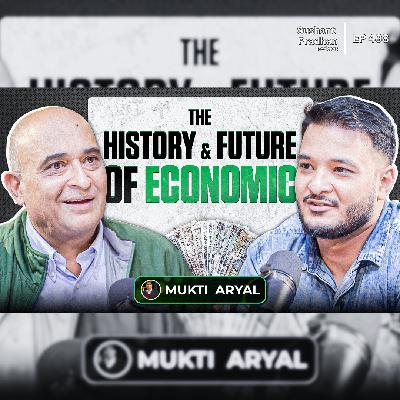
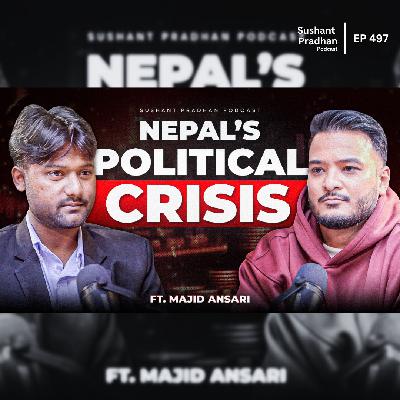
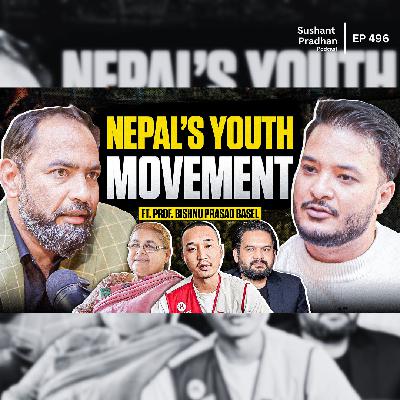

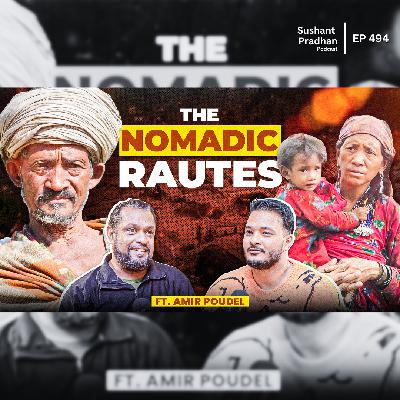
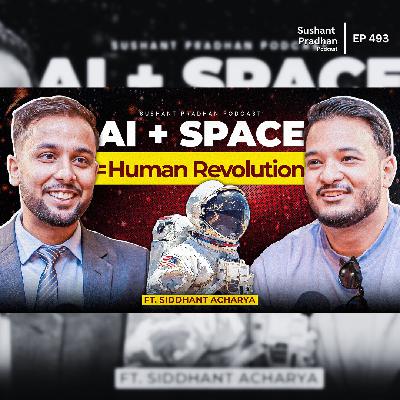
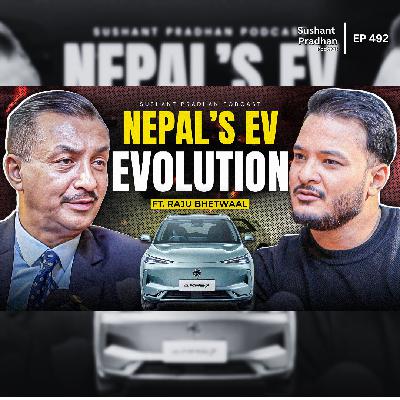



why is the word "covid" being beeped?